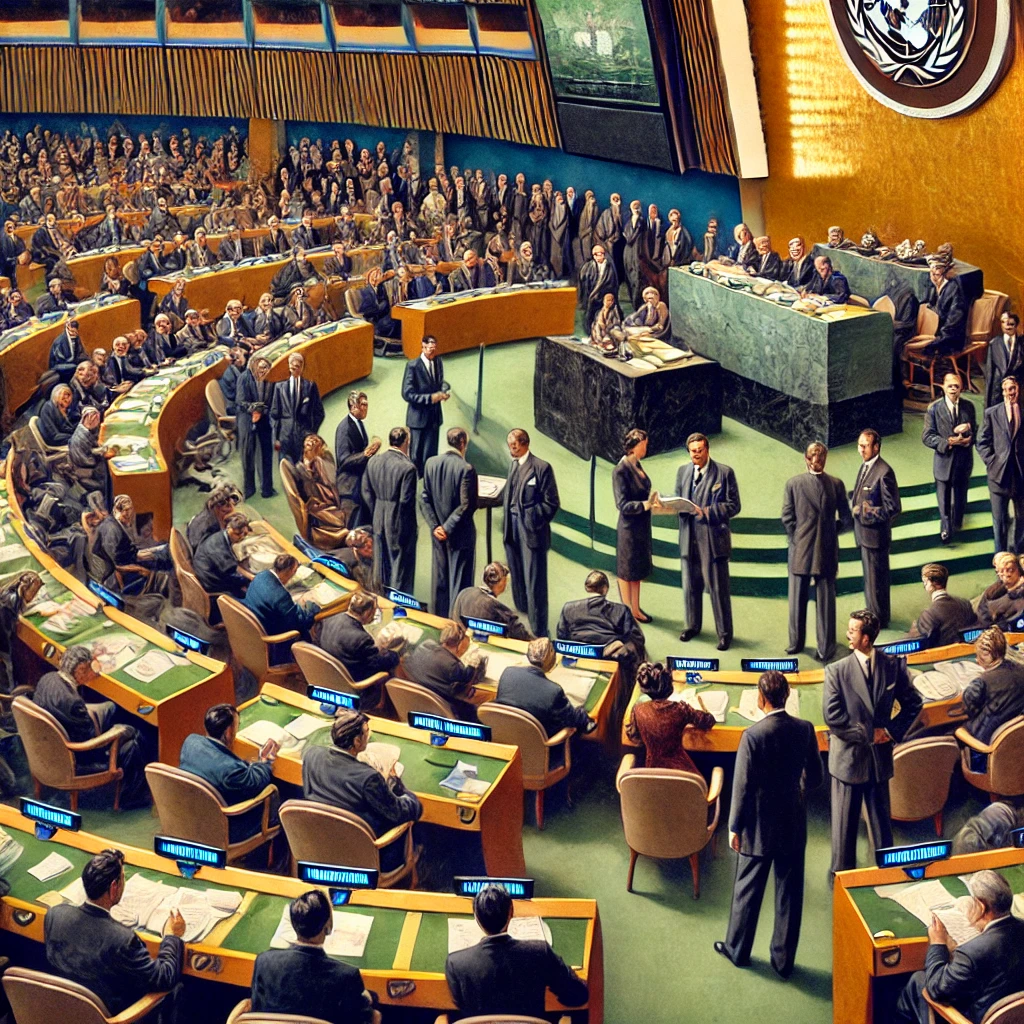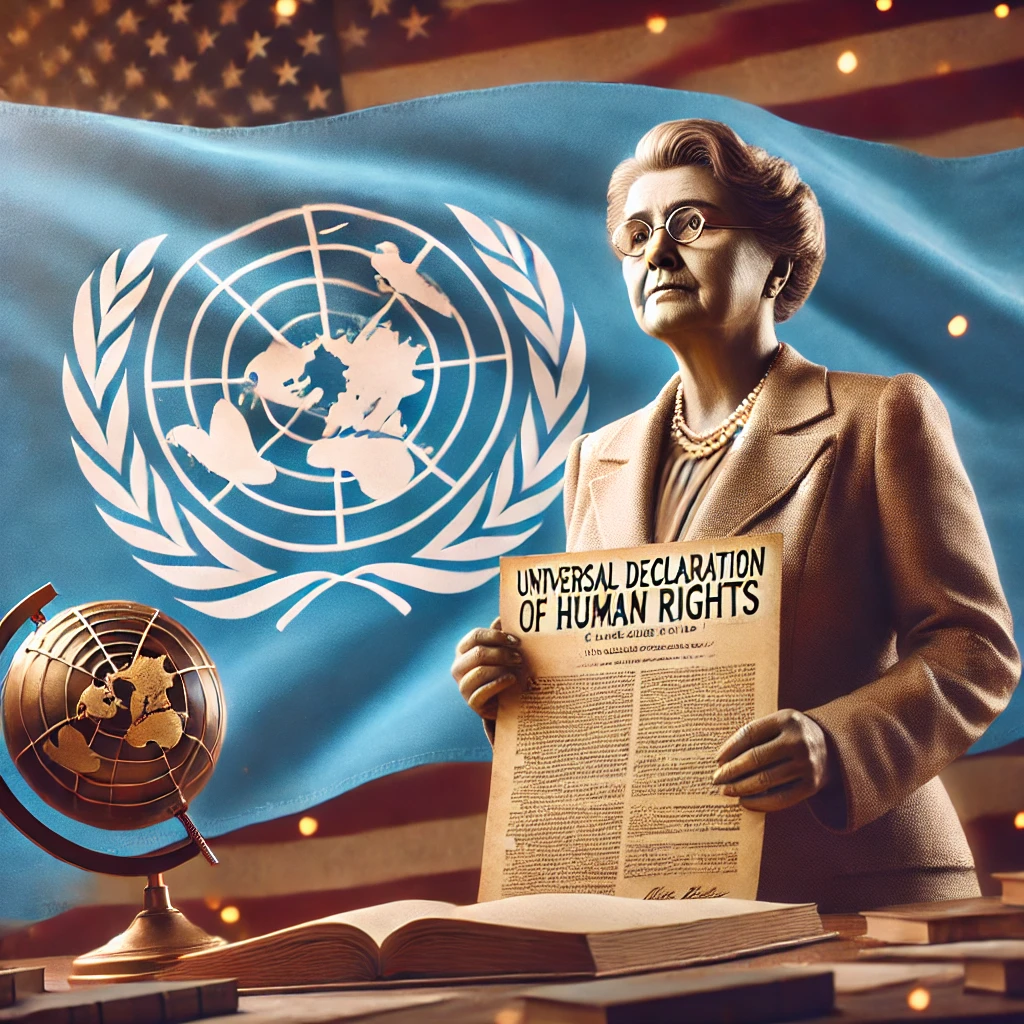December 10th, 1948, marked a watershed moment as the United Nations General Assembly adopted the Universal Declaration of Human Rights (UDHR). This historic document, born from the ashes of World War II, was a bold commitment to protecting the dignity, rights, and freedoms of every individual worldwide. It set a new standard for human rights, declaring them universal, inalienable, and indivisible.

The Context: A World in Recovery
The adoption of the UDHR was deeply rooted in the global trauma and atrocities of World War II. The war’s devastation highlighted the dire need for an international framework to prevent the violation of basic human rights. As millions suffered under oppressive regimes and genocide, the global community recognized the urgency of uniting to uphold the principles of justice, equality, and human dignity.
Eleanor Roosevelt, chair of the drafting committee, played a pivotal role in shaping the UDHR. She, along with representatives from diverse cultures and legal traditions, ensured the document was inclusive and reflective of humanity’s shared values. On December 10, 1948, the UN General Assembly in Paris adopted the UDHR with 48 votes in favor, none against, and eight abstentions—a testament to its broad acceptance.

The Significance of the UDHR
The Universal Declaration of Human Rights was the first global acknowledgment that human rights are inherent to all individuals, regardless of race, religion, gender, or nationality. Its 30 articles encompass a wide range of civil, political, economic, social, and cultural rights, including the right to life, freedom from torture, and the right to education and work.
The UDHR’s adoption was groundbreaking, laying the groundwork for numerous human rights treaties, declarations, and organizations. It became the foundation for international human rights law, inspiring documents like the International Covenant on Civil and Political Rights and the International Covenant on Economic, Social, and Cultural Rights.
The Lasting Impact Today

The UDHR continues to influence modern society, serving as a moral compass and a legal framework for addressing human rights issues. Its principles guide the work of the United Nations, non-governmental organizations, and governments worldwide in their efforts to promote equality, combat discrimination, and support marginalized communities.
In a world still grappling with human rights challenges, the UDHR remains a symbol of hope and progress. From the global movements advocating for gender equality and racial justice to efforts to protect freedom of expression and privacy in the digital age, the UDHR’s legacy is evident.
As we commemorate December 10th, we are reminded of the enduring importance of this seminal document. It calls on all of humanity to work collectively toward a world where every person’s rights are respected, protected, and fulfilled—a vision as relevant today as it was in 1948.
